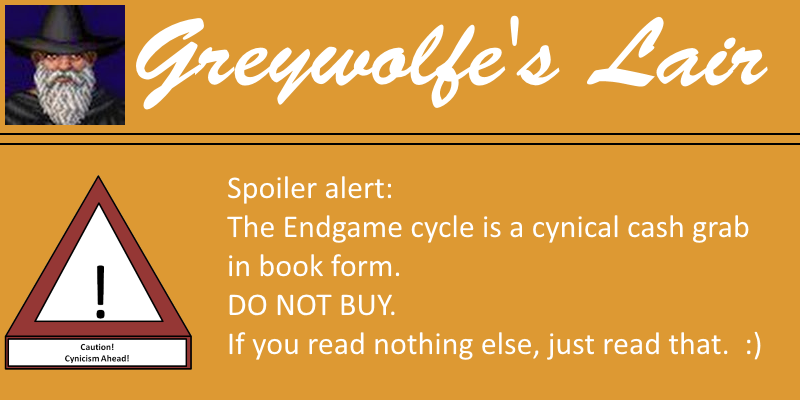This is going to be a cynical review.
Because this book is cynicism personified.
As a computer science major, years ago, I had a pair of classes that were about writing. Very specifically, in order to become a Doctor of Science you had to write a research paper. We had two very different classes with two very different lecturers for those classes. The first - and most vital subject was called Research Methodology. That guy hated us. He didn't get tenure and he was frustrated at us and everything around him. So he set crazy rules for every essay we ever wrote.
The second guy was way more mellow. That particular class was Thesis Writing. Both of these two classes combined went together to form our Thesis Project and one of the very few lessons that stuck with me came from very early in the writing cycle: If you're writing a Thesis, you NEVER write from the conclusion backward. Never.
You set up a working hypothesis. You devise tests for the hypothesis. You analyse the data. In short, you make sure that you're surprised in the end so that your conclusion isn't a foregone thing.
But some writers don't like that approach. It's time-consuming. There's so much you have to do to arrive at a completely novel [or at least unexpected] result. All those tests you have to devise? They take time. All that analysis? Why bother?

And it's in this vein that I want to introduce the Endgame cycle. I've now read two books and while this particular review will only really cover the first, understand that I'm talking about the series as a whole, because what I've read, well...
...let's start with the conclusion.
So, once upon a time there was a division of Harper Collins. This division of Harper Collins saw and understood that the Hunger Games became a publishing phenomenon much like the Harry Potter books before it. Various people had tried various spins on the Hunger Games to no real avail. There was Allegiant. It didn't really stick. There was the Maze Runner. It didn't really take off. There were all of these things but they didn't seem to go places or do things.
But Harper Collins desperately wanted some of that pile of money.
Now, while I can't be sure that it absolutely went down like this, I have a strong suspicion that it totally did.
So. That pile of money was sitting there waiting to be collected. And Harper Collins figured that the best way to write a book that took off like the Hunger Games was just to flat out write that book but in a different way, but to also add a media frenzy to the whole thing.
And this is how I think Endgame came about.

I think that Harper Collins decided to write a blockbuster that they could churn into a movie as soon as possible. But of course, to do that, they needed to have some kind of media surrounding the actual book, so they tacked on a clue-ridden game and an application that fed off the books. Most modern media call this "transmedia synergy."
And it's about as lame as it sounds. Bundle many things together! Make sure that no one gets the full experience until they see all the other bits! It's cynical.
And at the helm of this current fiasco? The guy responsible for the "transmedia synergy" of "I am Number Four," James Frey.
This is a guy I've never heard of before, but just judging from his Wikipedia page, he's all about the cynical.
Here, go see for yourself: James Frey's Wikipedia Entry.
Anyhow, so this was written with the end-goal of becoming a blockbuster movie and 20th Century Fox bit. It's a sad day for fiction.

We're 630 words in and I haven't even talked about why this whole thing is such a travesty, but really, there's not much to see here: Frey takes the idea of "12 youngsters" bundles it up into a pre-Armageddon setting where in order for Earth to survive, they must play Endgame - a "game" to the death where only one can survive. That lone survivor and their line [a bloodline they can trace back generations] will be spared and the world will be reborn with that line as the only humans left alive.
Spot any similarities yet? Yeah. I thought so.
About the only good thing here is that he tries to connect several dots together with regards to our ancient history that historians don't really have answers for, yet. But otherwise, it's [basically] twelve psychopaths, a quest with "three keys" and a doomsday scenario instead of President Snow.
And it feels so empty. Literally like he's writing for the money. [Again, given his Wikipedia entry, this wouldn't even be alarming or surprising.]
Conversations go like you imagine, with him busting out "Hollywoodese" at every turn. Set-pieces are all high-speed, action-packed, gun-toting and knife-wielding fury.
I do have to give him a tiny, tiny sliver of credit, though: one of his characters, Aisling Kopp, very much reminds me of YT from Snow Crash. But now we're talking about a good book, with an interesting plot, witty writing and an intriguing set of characters, so we'd best stop that right in it's tracks.
So, should you buy this?
Oh goodness, no. Allow me to have been your guinea pig. This man and his cynical writing does not deserve your money. And Harper Collins should certainly feel ashamed for publishing this particular bit of drivel.
They wanted their conclusion before their hypothesis.
They certainly published something incredibly cynical and designed as a cash-grab.
But I can understand their motives. They desperately wanted that Hunger Games money.
Images courtesy of Pixabay


I’ve not ready any of the aforementioned books, but that plot somewhat reminds me of Ready Player One also, which I absolutely enjoyed. I have no desire to read a rehashing of ideas though.
again.
ready player one is a “mostly good book” and worth your time.
if you absolutely want to read this, then..
…pirate it.
[hey, dr.s, please don’t moderate this comment out of existence :P]